By Kelly Munn, League of Education Voters State Field Director, and Jacob Vela, League of Education Voters Senior Policy Analyst
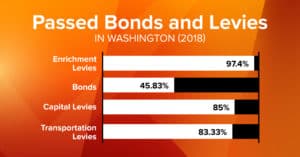 Last month, communities across Washington state voted on local levies to continue funding for enrichment programs and capital projects at district schools. Here are the election results and my analysis.
Last month, communities across Washington state voted on local levies to continue funding for enrichment programs and capital projects at district schools. Here are the election results and my analysis.
154 out of the 295 school districts in Washington state ran an Enrichment levy, and 150 passed. 42 levies passed because of simple majority, which is a 50-59.9% yes vote. Those districts that passed in the 50-55% range were mostly in the Puget Sound area.
24 school districts ran a bond, and 11 passed. 11 of the failed bonds would have passed with simple majority for bonds. Bonds currently pass only with a yes vote of 60% or greater.
60 school districts ran capital levies, and 51 passed.
6 school districts ran transportation levies, and 5 passed.
150 school districts passed an Enrichment levy. It does not yet appear that the confusion around the new McCleary funding is effecting the overall passage rate across the state. 150 out of 154 school districts passed. Superintendent Jim Kowalkowski explains what passage of the levy means for his Davenport School District: “We are excited that many of the programs we offer for students (College in the High School, Satellite Skills Center, Knowledge Bowl, All-day Preschool, Project Lead the Way (STEM) courses, Choir and Drama Programs, etc., will continue to be a part of our educational offerings. We are so grateful to have such a supportive community!” Read More
 In our podcast, we interview policymakers, partners, and thought leaders to spotlight education policies, research, and practices so that together we can create a brighter future for every Washington student.
In our podcast, we interview policymakers, partners, and thought leaders to spotlight education policies, research, and practices so that together we can create a brighter future for every Washington student. By Jacob Vela, Senior Policy Analyst
By Jacob Vela, Senior Policy Analyst The recent investments and changes made to the K-12 funding system in response to the Washington State Supreme Court McCleary ruling will have long-lasting impacts on our education system. While progress has been made to adequately fund basic education, more work remains to ensure that we equitably fund basic education. League of Education Voters is committed to working with districts and partners to continue to move towards an education system that is funded to provide every student what they need to succeed.
The recent investments and changes made to the K-12 funding system in response to the Washington State Supreme Court McCleary ruling will have long-lasting impacts on our education system. While progress has been made to adequately fund basic education, more work remains to ensure that we equitably fund basic education. League of Education Voters is committed to working with districts and partners to continue to move towards an education system that is funded to provide every student what they need to succeed.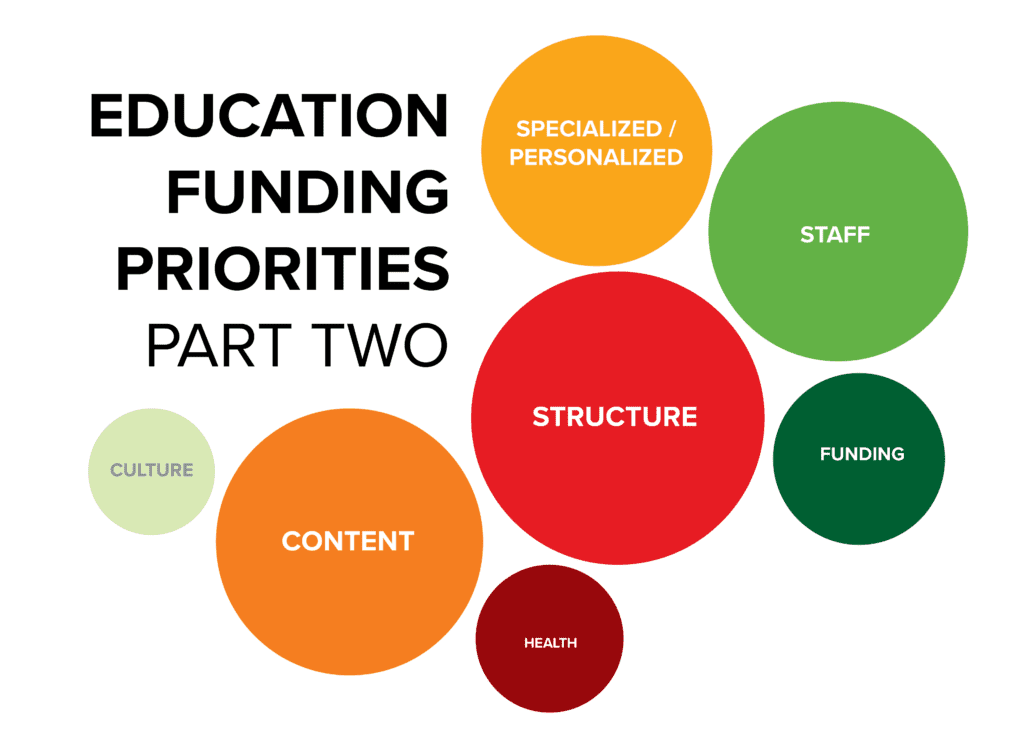
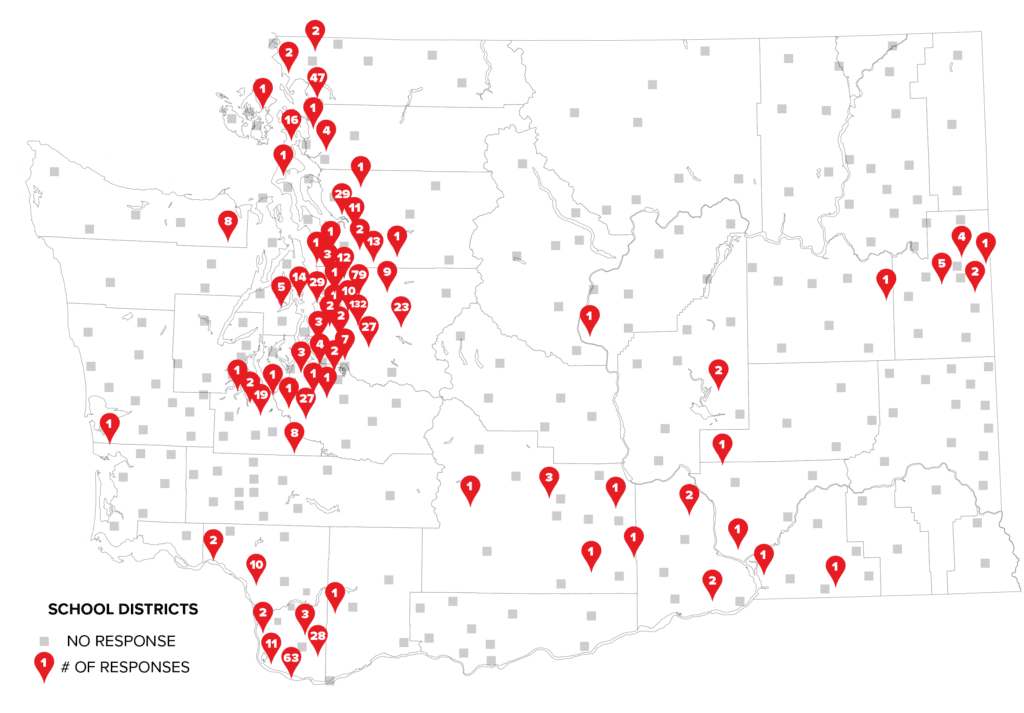
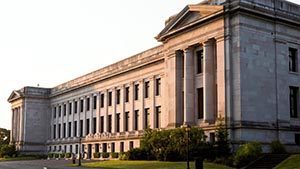
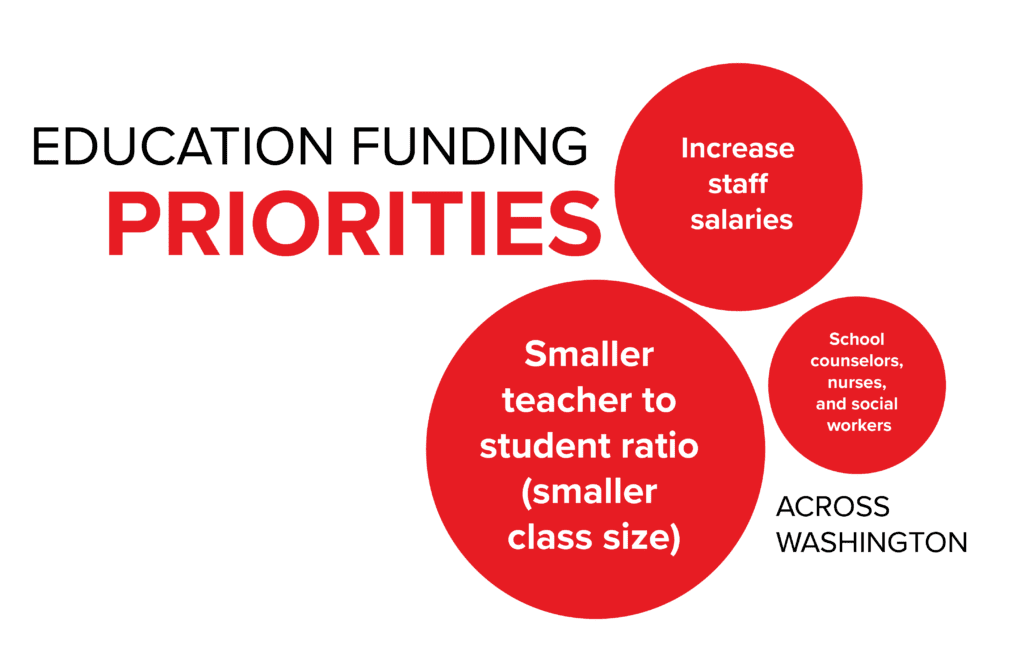
 Last month, communities across Washington state voted on local levies to continue funding for enrichment programs and capital projects at district schools. Here are the election results and my analysis.
Last month, communities across Washington state voted on local levies to continue funding for enrichment programs and capital projects at district schools. Here are the election results and my analysis. The Legislature made significant changes to the K-12 education funding structures in 2017—infusing more than $7 billion in state money into the system over four years through
The Legislature made significant changes to the K-12 education funding structures in 2017—infusing more than $7 billion in state money into the system over four years through 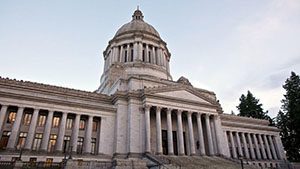 The Washington state Legislature passed a state budget agreement (
The Washington state Legislature passed a state budget agreement (